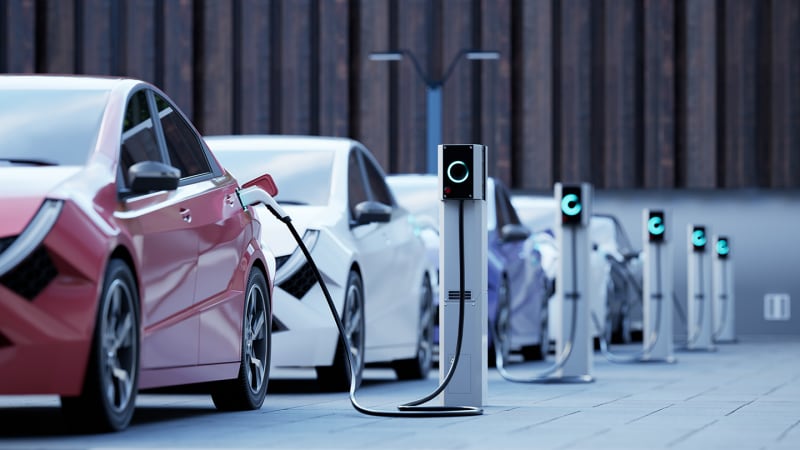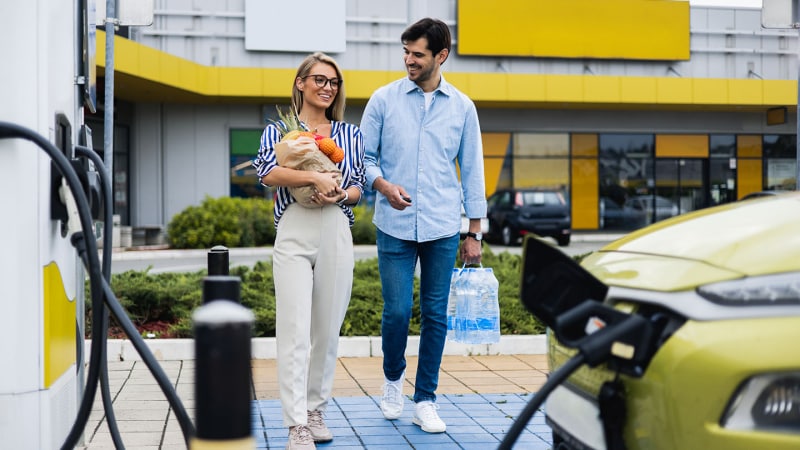How to buy a used EV

Quick insights
- Buying a used EV is a process that warrants a certain level of research and reflection.
- Before buying a used EV, it's important to evaluate the battery health, your own driving needs and the full range of market options.
- By taking certain steps, you can make an informed decision and find a used EV that suits you best.
Sales of used electric vehicles (EVs) are expected to double from 2022 to 2024, according to Recurrent Auto—which also says the average price of a used EV today is just under $24,000. Those pre-owned EVs are also eligible for a $4,000 federal government rebate. As used EVs become both more affordable and more common, there are several considerations that EV buyers should keep in mind.
Assess battery health
As with any used car, buyers in the market for a used EV should always get a professional inspection and request access to the car’s complete maintenance history. For used EVs in particular, the next step is to dive deep into the EV’s battery health because its condition will directly impact range and performance.
Here are some tips for how to review a used EVs battery health:
- Ask for a battery health report from the seller: A used EV may not have the same range it had when it was brand new. In the absence of a formal report from the seller, you can assess the vehicle’s current range by seeing how many miles the car can drive on a 100% charge and comparing that number to the original maximum range listed on the manufacturer’s website or in this searchable database from the U.S. EPAOpens overlay.
- Find out if the battery is original to the car: As with any used car, the age of the battery is important to know, and newer batteries will likely have greater longevity and efficiency.
- Check the battery’s remaining warranty with the seller: According to Kelley Blue Book, most battery warranties typically run eight years or 100,000 miles after the initial purchase, whichever comes first. However, not all warranties transfer to new owners. You can check the warranty details by contacting the automaker’s customer service department with the vehicle identification number (VIN).
Consider range and charging needs
As with a new EV, charging and range needs are paramount. When shopping for a used EV:
- Consider how you’ll use the car: The length of your daily commute, as well as how frequently you tend take longer road trips, are major factors in determining the range that’s right for you.
- Identify chargers near you: According to the Joint Office of Energy and Transportation, there are more than 70,000 public charging stations across the United States as of June 2024. Additionally, some workplaces now offer charging stations as perks. Do some research to determine where chargers are located along your daily commute and other common routes.
- Determine how long it takes to charge: Charge times vary, depending on the size of the battery pack, the type of charger and other factors. Many drivers opt to charge overnight in their garage, which allows for a longer charge time. But if you don’t have access to a charger at home, you may want a car with a shorter charge time so you can utilize public or workplace chargers.
In summary
The market for used EVs has been growing, as costs come down and availability rises. The current $4,000 federal rebate on pre-owned EVs under $25,000 makes some models even more affordable. When buying a used EV, the most important consideration is battery quality. Take care to research battery life, consider your driving needs and explore your charging options. Thorough research and inspection can help ensure a successful used EV purchase.
To learn more about EVs, visit chase.com/EV.



